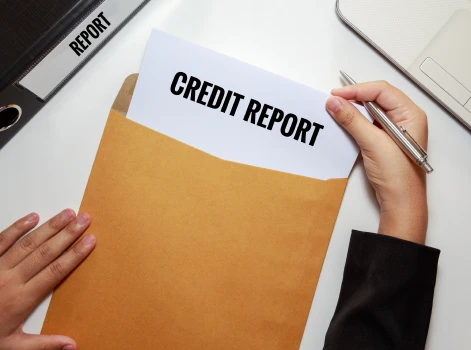Your credit score represents your character as a borrower, so having a good score increases your chances of home loan approval.
Most Australians don’t have a clear understanding of what a credit score is, let alone the factors that can affect it.
So while you may have a high credit score today, how do you maintain this score over the long-term?
What is a good credit score?
The average credit score or Equifax score in Australia is 550, so scores in the range of 600-700 are considered “Good”.
Any score above 700 are considered “Excellent”, although we’ve seen scores as high as 1200.
If your score is below 500, don’t worry!
There are specialist or non-conforming lenders that offer so-called bad credit home loans.
In some cases, our experienced mortgage brokers can build a strong case with a second-tier lender as long as you can show that your past credit problems are behind you and you’re in a more stable financial position.
To find out whether your credit history may be a problem, please enquire online or call us on 1300 889 743 today.
How is this score calculated?
Your credit score is a numerical representation of the details in your credit file, including how many credit enquiries you have made in the last 12 months and whether you have any defaults to your name.
If you have ever applied for credit or a loan facility, it will be added to a report held by a credit reporting agency, typically Equifax (formally Veda Advantage), Experian or Dun & Bradstreet.
Not sure what your credit score is?
You can request a free copy of your credit file from any reporting agency once a year or 90 days since making a credit application.
You can:
- Write to Equifax: You will get a free copy within 14 days.
- Apply on Equifax’s website: You will get it right away, although you will pay a fee.
- If you are a customer of ours: Then just ask us to email you a copy of your file.
Your credit file is private information and cannot be accessed by unauthorised persons such as friends or relatives.
You must also consent to a lender either verbally or in writing before they can access your file.
Maintaining a high credit score
Did you know that under comprehensive credit report, or positive credit reporting, it is now easier to drag down your credit score?
That’s because banks and credit providers are sharing more data with each other and at a more granular level.
Luckily for good borrowers, there are several ways to maintain your credit score.
Make your payments on time
One of the most important factors under comprehensive credit reporting is your repayment history.
In the past, a black mark would only be recorded on your credit file if a payment on a credit facility was more than 60 days late. This is known as a default.
Today, missed repayments can be recorded in your credit history if you are late by 15 days or more.
Some golden tips:
- Set up automatic payments with your credit providers to ensure you don’t miss your payments and avoid defaults being marked on your file.
- Close down unused accounts in order to better manage your outgoings. Focus on paying down your credit card debts as much as possible or any high-interest debts.
Don’t apply for credit that you don’t need
Open a savings account and save as much as you can and don’t apply for loans that you don’t need. New credit applications account for 10% of your score.
Your goal should be to minimise the number of enquiries on your credit file.
Reduce your credit limit
Banks will assess you on your credit limit rather than your actual monthly spending so reduce your credit limit where you can.
In particular, your credit card balance should be within 30% of your total credit limit in order to maintain a good credit score.
Learn more about positive credit reporting
Comprehensive credit reporting or positive credit reporting became mandatory for all lenders starting from 1st July 2018.
It serves to provide lenders with a more comprehensive picture of your credit history.
Under the previous negative credit system, credit reporting agencies like Equifax just collected negative data such as enquiries, defaults, court writs, judgments and bankruptcy details.
Credit agencies still report this data but comprehensive credit reporting means they collect the following data as well:
- 24 months of repayment history.
- Open and close dates of credit accounts.
- Type of credit account opened.
- Current account limits.
- Your usual repayment amount.
- Repayment performance history.
Find if you qualify for a mortgage
Did you know that maintaining a clean credit file is just one of the factors that lenders consider when assessing your application?
In fact, some banks even use their own credit score which takes into account not only your credit file but your employment statusemployment status, your current postcode and whether you have genuine savings.
It is tougher than ever to qualify for a home loan!
Luckily, we’re experienced mortgage brokers with many lenders to choose from.
Enquire online or call us on 1300 889 743 to start your home loan journey today.
